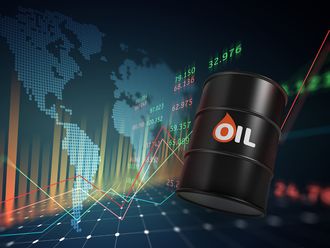The 20th World Petroleum Congress in Doha ended on December 8 and reporters agree that it has been a success all round. The conference was attended by more than 5,000 government and industry delegates and media representatives, many from the highest level.
It was the first time an oil-producing country from the ranks of Opec hosted the congress and the first time for an Arab country to do so.
The theme, "Energy Solutions for All: Promoting Cooperation, Innovation and Investment", was indeed appropriate as hundreds of millions of people in the developing countries do not enjoy the benefits of "reliable, affordable and sustainable energy".
Although no general recommendations came out of the Congress, cooperation was often a key word in many presentations.
The director-general of the Opec Fund for International Development (Ofid), Sulaiman J. Al Herbish stressed the importance of energy sustainability and combating energy poverty. He invited the industry to join the Ofid and other aid organisations in meeting this challenge.
Cooperation among producers and consumers was on many delegates' minds. While Total's CEO Christophe de Margerie called for "massive investment" by producers to meet future energy needs, James Mulva, the CEO of ConocoPhillips said "producers won't invest in new supplies unless they believe they will be utilised."
Differences
Qatari Energy Minister Mohammad Al Sada said $20 trillion (Dh73.40 trillion) was needed for oil and gas related investment and producers must have accurate information on the needs of consumers.
As expected, there was no meeting of minds between Opec Secretary General Abdullah Al Badri, who believed that current oil prices are fair for consumers and producers, and IEA (International Energy Agency) Executive Director Maria van der Hoeven who thought prices are high and that they will not help in getting out of the economic recession.
Forgetting the short-term and the current woes of the world economy, there were many signals of a better outlook for the future.
ExxonMobil forecast the global economy will more than double between 2010 and 2040, and energy demand will grow by more than 30 per cent.
De Margerie said that today's total energy requirement is "260 million barrels a day oil, and in 2035 our expectation is 325" and that "fossil fuels will continue to make 76 per cent of the energy supply by 2050." Der Hoeven said oil demand is likely to grow by 28 per cent between 2010 and 2035.
Technology
The belief in technology and its evolution is clear. Many observers pointed out that what the energy industry is doing today was thought impossible only a decade ago, and that this will put the theory of peak oil very much into the future or even in doubt.
The first Congress was held in 1933 where the structure of the oil industry was limited and controlled by the major oil companies known as the "seven sisters". However, the Congress has evolved over time; participation is as wide as the oil industry, and lively discussions on all aspects related to the oil and gas industry, and more recently alternative energies, are conducted. No wonder it is known as the "Olympian Event of the Oil and Gas Industry" accompanied by its fam-ous exhibition.
The World Petroleum Council's membership has grown to 60 countries. Its prime function is to facilitate dialogue among stakeholders on key technical, social, environmental and management issues, and find solutions to those issues".
Although it was the first time the Congress was held in an Opec country, the relation between WPC and Opec goes back a long time.
Papers
Opec was often represented at the highest level in the Congress with the attendance of many Opec ministers and the secretary-general. Opec was often invited to contribute papers for special publications of WPC and conduct special meetings to discuss carbon capture and storage to reduce carbon dioxide emissions.
In the 19th Congress in Madrid in 2008, Opec participation was far stronger and Ali Al Nuaimi, Saudi Arabia's oil minister, was awarded the prestigious Dewhurst Award for outstanding industry achievement.
Until the next Congress, the world will go on worrying about the uncertainty and volatility of the oil market, a fact that the Congress said we have to live with.
The writer is the former head of Energy Studies Department in Opec Secretariat in Vienna.












